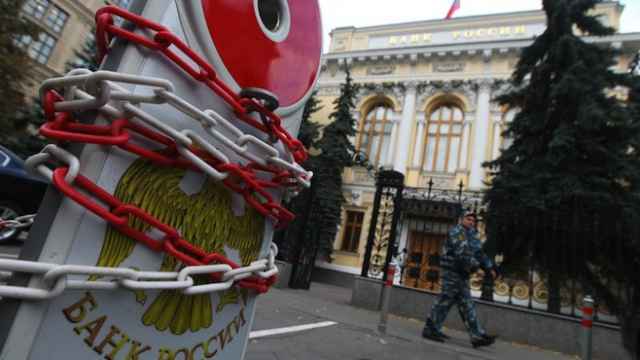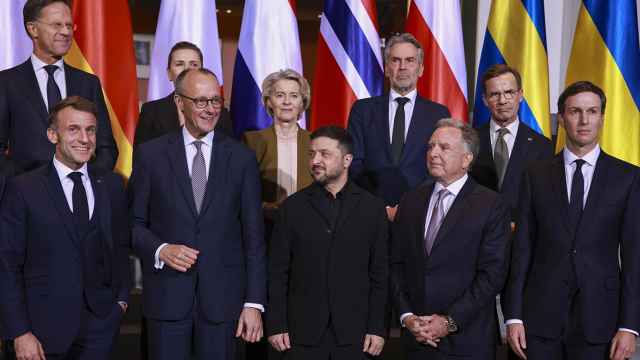Russia's economy is likely to grow by 0.7 to 0.8 percent in 2014 but next year's 1.2 percent growth forecast may have to be revised, Economy Minister Alexei Ulyukayev said.
In an interview with German newspaper Frankfurter Allgemeine Zeitung published on Tuesday, Ulyukayev defended Russian economic policy, blaming external factors such as the events over Ukraine for starting what he called an "avalanche."
The ministry has officially forecast growth of 0.5 percent this year but ministry officials say this may be an underestimate, given 0.8 percent growth in the first 10 months.
Asked about next year's growth forecast of 1.2 percent, Ulyukayev said: "We, possibly, will have to correct our forecast."
In contrast, the Russian Central Bank expects growth of just 0.1 percent next year, reflecting the economic damage caused by Western sanctions imposed over the Ukraine crisis and a slump in oil prices.
Commenting on the oil-price slide — a problem for Russia's commodity-dependent economy — Ulyukayev said that he did not believe in conspiracy theories, seeing the fall as the result of changes in global supply and demand.
"Now the market is looking for a new equilibrium. I think that in 12 months it will be found close to $90 per barrel," he said.
Ulyukayev said economic problems facing Russia reflected events abroad including in Ukraine. "Now the avalanche is rolling and it's extremely difficult to stop. We can only try somehow to defend ourselves," he said.
The minister reiterated his opposition to providing state support to oil producer Rosneft, saying it was in a good financial condition. The company has asked for nearly $50 billion from a state fund.
Ulyukayev also opposed selling rival oil company Bashneft to Rosneft, arguing that "if one state enterprise is sold to another this cannot be privatization." He said Bashneft would be included in the government's privatization plan.
Bashneft was recently returned to state ownership as a result of a criminal investigation into its owner, causing investors to fear that the state was using the case to expropriate private property.
A Message from The Moscow Times:
Dear readers,
We are facing unprecedented challenges. Russia's Prosecutor General's Office has designated The Moscow Times as an "undesirable" organization, criminalizing our work and putting our staff at risk of prosecution. This follows our earlier unjust labeling as a "foreign agent."
These actions are direct attempts to silence independent journalism in Russia. The authorities claim our work "discredits the decisions of the Russian leadership." We see things differently: we strive to provide accurate, unbiased reporting on Russia.
We, the journalists of The Moscow Times, refuse to be silenced. But to continue our work, we need your help.
Your support, no matter how small, makes a world of difference. If you can, please support us monthly starting from just $2. It's quick to set up, and every contribution makes a significant impact.
By supporting The Moscow Times, you're defending open, independent journalism in the face of repression. Thank you for standing with us.
Remind me later.






